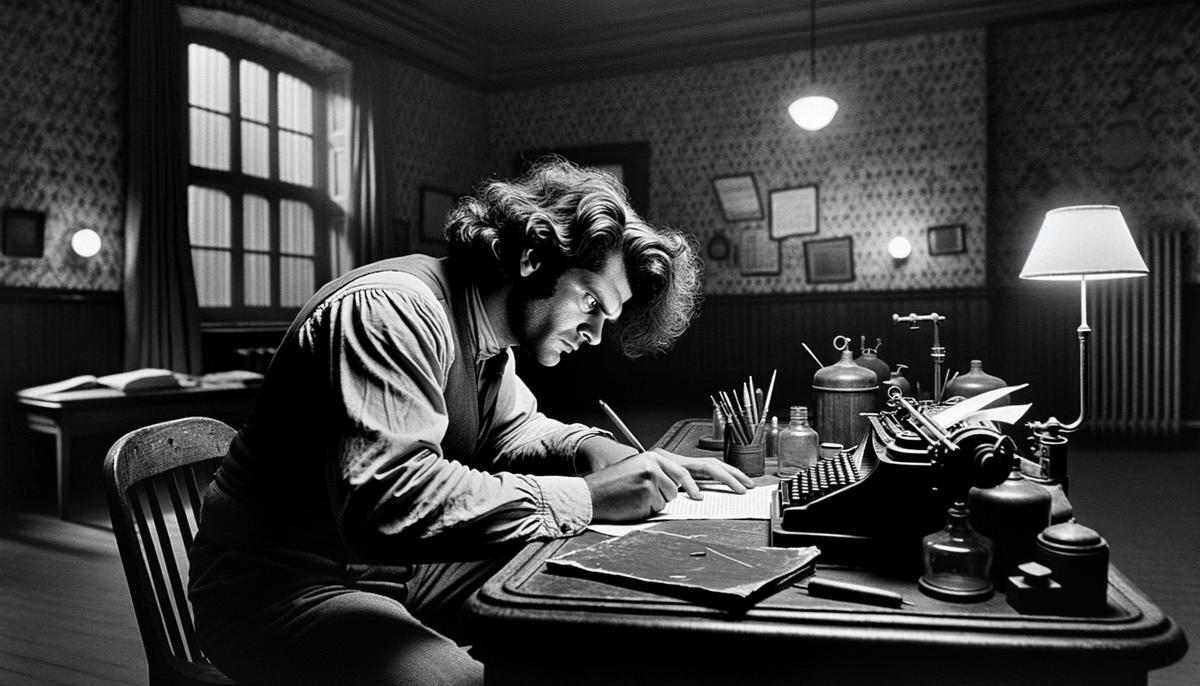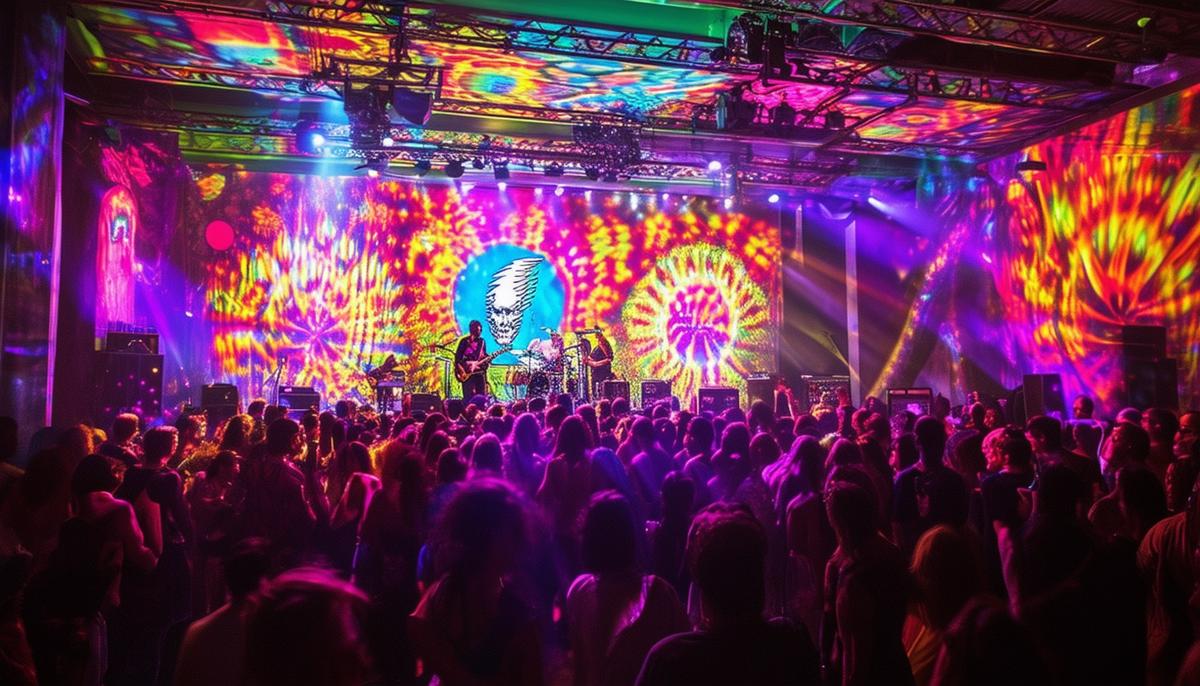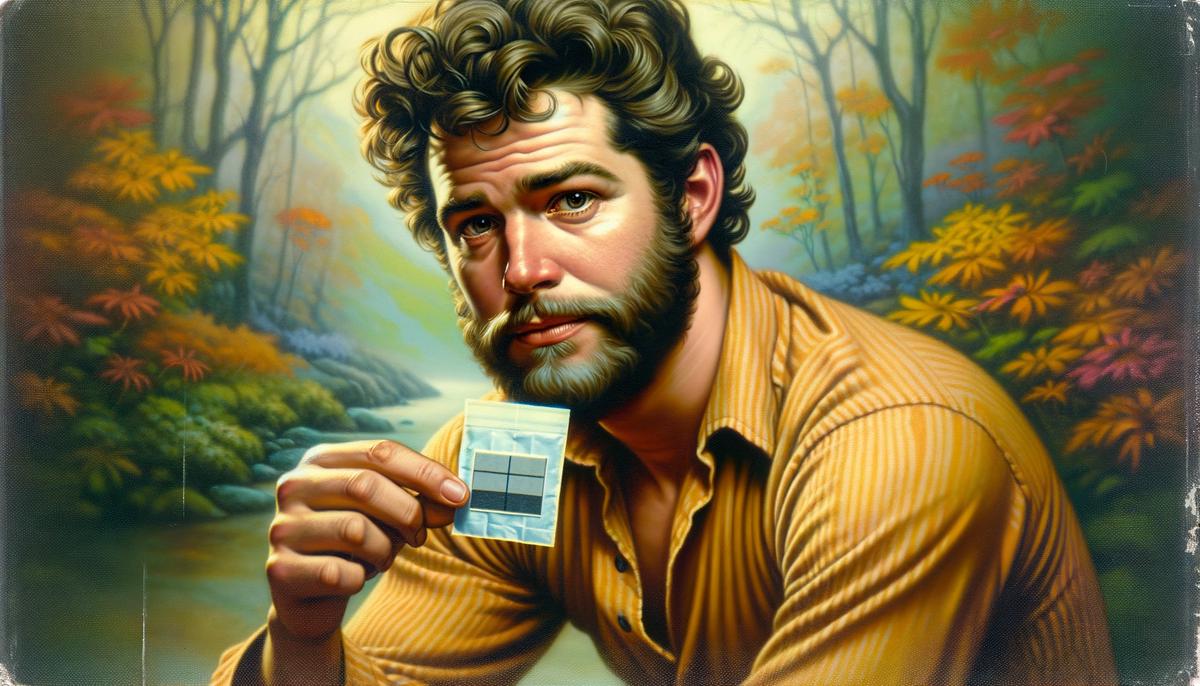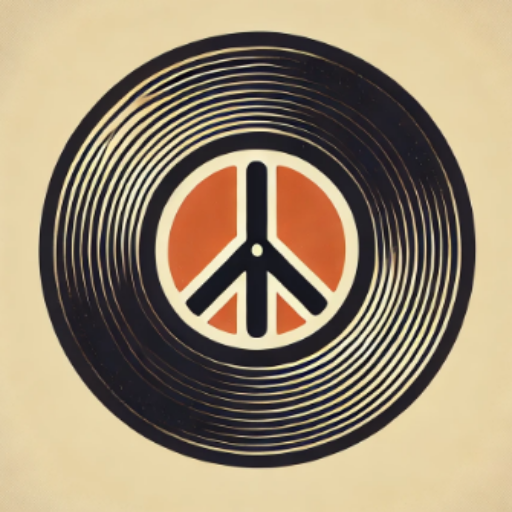Origins of the Acid Tests
Ken Kesey's journey into psychedelia began with his participation in MKUltra, a CIA-funded experiment where he sampled various mind-altering substances, notably LSD. This experience sparked his creativity, leading to the writing of "One Flew Over the Cuckoo's Nest" while working as a night watchman at a mental hospital.
Settling in La Honda, California, Kesey and his group, known as the Merry Pranksters, threw wild parties fueled by LSD. They transformed a 1938 International Harvester school bus into a mobile psychedelic haven, with Neal Cassady at the wheel. This colorful crew traveled across America, challenging norms and spreading their counterculture philosophy.
The Acid Tests emerged from Kesey's desire to create public celebrations of altered consciousness. These gatherings featured:
- Strobe lights
- Live music by The Grateful Dead (then The Warlocks)
- Swirling projections
The spontaneous nature of these events left participants questioning their perception of the world, while the police kept a watchful eye on the proceedings.

The Merry Pranksters' Cross-Country Journey
The Merry Pranksters' road trip on their psychedelic bus "Furthur" was a wild ride through the heart of America. With Neal Cassady at the wheel, the bus became a rolling spectacle, its exterior swirling with vibrant colors that caught the eye of everyone they passed.
As they traveled, the Pranksters became living embodiments of the counterculture spirit. Their journey wasn't just about covering miles; it was about sparking conversations and challenging societal norms. Each town they passed through became a ripple in the cultural pond, with whispers of their antics spreading like wildfire.
In New York, they hoped to connect with the Beat Generation, signaling a shift from the Beats to the emerging hippie culture. Though their encounter with Timothy Leary didn't materialize, the journey itself stood as an unplanned manifesto of the emerging consciousness movement.
"You're either on the bus, or you're off the bus."
This famous quote from Kesey encapsulated the all-or-nothing attitude of the Pranksters' mission. The cross-country trip wasn't just a ride; it was an adventure that invited everyone to question the status quo. As the bus rolled back to its hideaway beneath the redwoods, the seeds it had planted began to grow into a movement that would define the '60s.
The Acid Tests and Their Cultural Impact
The Acid Tests were a sensation that invited everyone to "turn on, tune in, and drop out." With The Grateful Dead providing the soundtrack, these events were a kaleidoscope of sound and color that pushed the boundaries of perception and social norms.
LSD played a central role, acting as a social lubricant that dissolved barriers and connected people in shared experiences. The Tests became:
- Incubators for activism
- Catalysts for change
- Challenges to societal assumptions
These gatherings transformed mere parties into movements, casting light on new possibilities and forever altering the landscape of American thought. Through the Acid Tests, Kesey and the Merry Pranksters sparked a cultural revolution that encouraged exploration, creativity, and a reimagining of social norms.

Ken Kesey's Shift Away from LSD
As the '60s progressed, Ken Kesey's perspective on LSD began to change. Despite orchestrating the Acid Tests, he started to question whether the drug was truly the key to unlocking a new consciousness or just another illusion.
Kesey became concerned that continuous reliance on LSD might trap the mind rather than free it. He encouraged people to experience an 'Acid Test graduation,' urging them to apply their psychedelic insights to life without constantly using the drug.
Legal troubles also played a role in Kesey's shift. Arrested for marijuana possession, he faced a stark reality that underscored the consequences of pushing cultural boundaries too far.
In urging this 'graduation,' Kesey left a lasting mark on the counterculture movement. He invited people to reconsider their relationship with psychedelics and find new ways to challenge conventions and discover themselves without relying on LSD.

Legacy of the Acid Tests
The Acid Tests left an indelible mark on American culture, serving as a catalyst for the hippie movement and sparking an ongoing fascination with psychedelic experiences. These gatherings rejected societal norms, bringing together a diverse mix of counterculture figures and free spirits.
The spirit of exploration and questioning authority that defined the Acid Tests continues to resonate today. The growing interest in psychedelics as tools for self-discovery and healing echoes the pioneering ethos of those mind-bending adventures.
The legacy of the Acid Tests extends beyond just taking a trip; it's about the journey toward self-awareness and societal transformation. Today's renaissance in psychedelic therapy and consciousness exploration tips its hat to those early trailblazers, reminding us that the melody they started still plays on, encouraging each of us to tune into something a little deeper and a little stranger.

Ken Kesey's Acid Tests weren't just gatherings; they were a transformative force that reshaped American culture. By challenging norms and embracing new ideas, they laid the groundwork for a movement that continues to inspire exploration and self-discovery today. The legacy of those vibrant nights lives on, encouraging us to imagine a world filled with endless possibilities.
- Wolfe T. The Electric Kool-Aid Acid Test. Farrar, Straus and Giroux; 1968.
- Stone R. Prime Green: Remembering the Sixties. HarperCollins; 2007.
- Thompson HS. Hell's Angels: A Strange and Terrible Saga. Random House; 1967.
